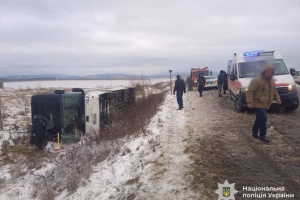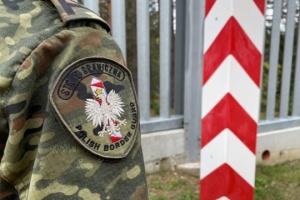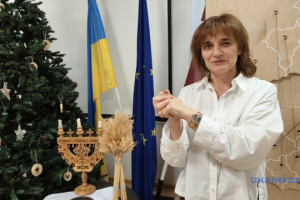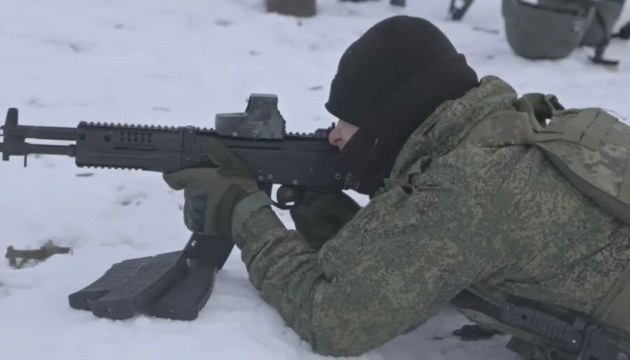
Propaganda and pseudo-humanism: What is wrong with the film “Russians at War”
The screening of the documentary “Russians at War” at the international film festivals in Venice and Toronto caused justifiable indignation not only among Ukrainian filmmakers. Citizens of various countries joined X/Twitter storms with demands to cancel the sessions and held protest actions in Canada. The Ukrainian state (represented by the Ministry of Foreign Affairs and Ministry of Culture and Strategic Communications) protested the public screenings and promotion of this film on international platforms, in particular the scheduled screening at the Zurich Film Festival. The Ministry of Culture included Anastasia Trofimova, the film director of the “Russians at War”, in the List of persons posing a threat to national security.
The Russian government formally played no role in creating the film, which is a Canadian and French co-production. Trofimova, film producers, and other public advocates call the film “neutral” and even “anti-war”, insisting that it will supposedly help viewers better understand what is really happening and dispel the “fog of war”. Trofimova identifies as a Russian-Canadian film director because she holds passports of both countries and diplomas from the Universities of Toronto and Amsterdam.
Why “Russians at War” cannot be considered a neutral film
Russia is waging a war of aggression against Ukraine. Terror against the civilian population, torture, and execution of prisoners of war and civilian hostages, rocket-bomb attacks on critical infrastructure and residential buildings, and other war crimes are common practices for the Russian military and are systemic in nature. Russian aggression is unprovoked, therefore Kremlin propaganda “explains” the attack on Ukraine with the need to fight against the fictitious “Nazism”, protect the “people of Donbas”, protect Russia from the “aggressive NATO alliance”, etc.
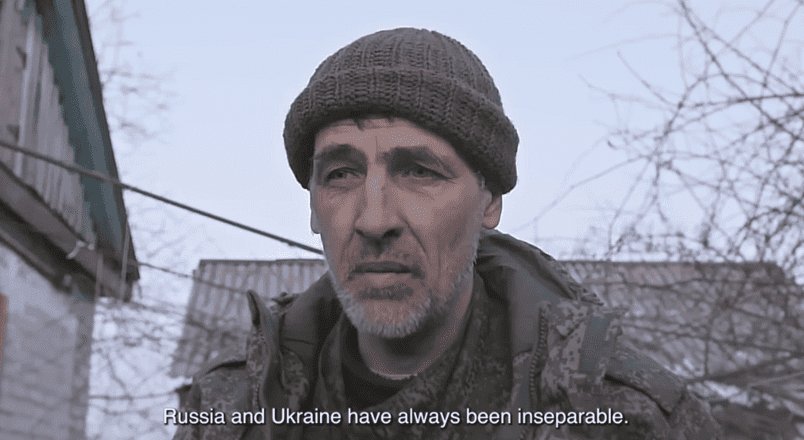
Furthermore, one part of these narratives is rebroadcast as the position of the film authors, and the other part is an uncritical citation of the actors—the Russian occupiers who are participating in hostilities on the territory of Ukraine:
- One actor, a native from the Donetsk region, explains his motivation to fight on Russia’s side by the fact that Ukraine has “bombed Donbas for eight years” since the start of the “civil war” in 2014. The author of the film not only doesn’t deconstruct this narrative, but also doesn’t even question it;
- The actors of the film talk about their struggle against “Ukrainian Nazism”. The film director does not even mention that Nazi ideology is prohibited in Ukraine and that its propaganda is punishable by criminal liability;
- The actors in the film deny their involvement in war crimes. Trofimova, personally, assures that she did not personally witness the crimes of the Russian military;
- The authors of the film do not hide their desire to “humanize” the Russian military, to remove any responsibility for complicity in aggression from them, as well as depict them as the victims and hostages of the “actions of politicians,” and to evoke sympathy from the audience for the occupiers and their families. Despite the fact that a significant part of them have admitted that they were participating in the war voluntarily to earn money.
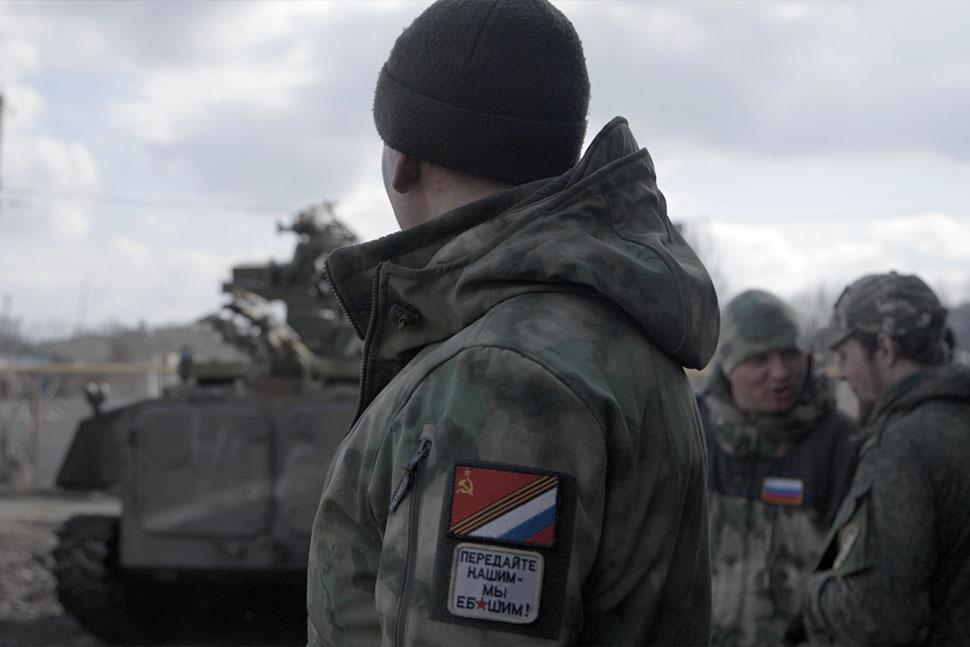
The authors of the film consistently ignore facts that are important for understanding the context and essence of the Russian-Ukrainian war. They do not mention the occupation or announcement of the annexation of Crimea. They do not mention the Russian occupation of parts of the Donetsk and Luhansk regions since 2014, as was established by the ECHR verdict of January 25, 2023. Also, they do not mention that the downing of the Malaysian Boeing over the Donetsk region was a result of this occupation.
At the time the film was made, the mass killings of civilians in Bucha, Izyum, Irpen as well as the bombing of the maternity hospital and the Drama Theatre in Mariupol were already well documented and covered in the international media. In 2023, the premiere and international distribution of the Oscar-winning documentary “20 Days in Mariupol” began. But according to Trofimova, she did not watch this film.
Why Anastasia Trofimova cannot be considered an impartial film director
Anastasia Trofimova had long worked for RT Documentary, a structural unit of the RT (Russia Today) TV channel, which is a key channel for spreading Russian propaganda to foreign audiences. Since 2022, the broadcast of RT has been blocked in the EU and the US, and sanctions have been imposed on the TV channel, its branches and its employees. Trofimova has collaborated with RT since at least 2014 and has shot 11 films for the Russian company.
In September 2024, the United States released evidence of RT’s cooperation and coordination with Russian special services, as well as the television company’s involvement in financing the Russian army. Given this, work at RT or other sanctioned structures of the Russian Federation should be a “red flag” for grant organisations because it cannot be guaranteed that ex-employees of RT have stopped working further in the interests of Russian special services.
Especially since in 2023, Trofimova posted on her page the obituary of the Russian “military correspondent” Kirill Romanovsky, who was provided with informational support for the activities of the PMC Wagner and Yevgeny Prigozhin personally. The text attests to the film director’s warm and friendly relations with the information criminal. Trofimova shot her films for RT, notably in Syria and the Democratic Republic of the Congo, where PMC Wagner was present.
However, this did not preclude Trofimova from receiving a sum of $340,000 from Canadian taxpayers, which was partially funded by the Canadian Media Fund for the production of “Russians at War”. The Toronto Film Festival didn’t mention Trofimova’s long-term cooperation with RT in a press release on their official website.
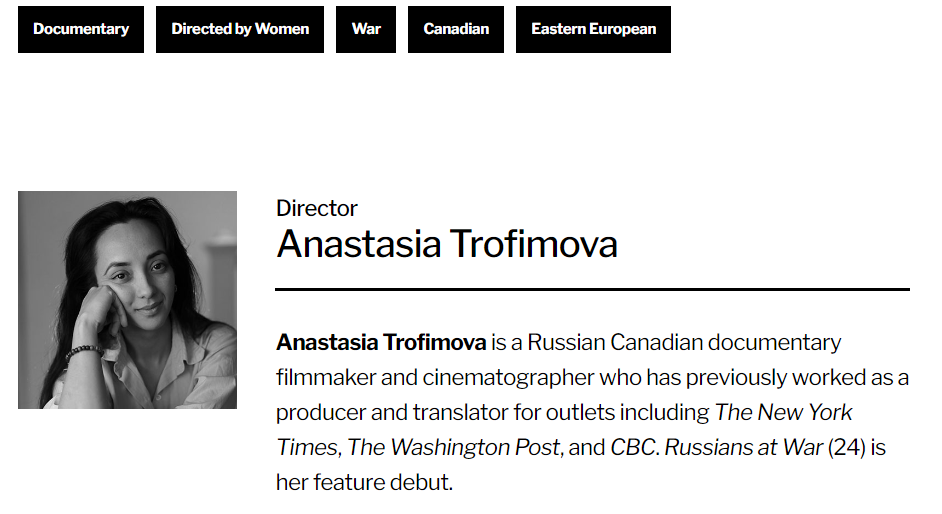
The authors of “Russians at War” claim that Trofimova got into the occupied part of the Donetsk region together with one of the Russian soldiers, whom she met on a train. The film director was allegedly embedded with a Russian army unit near Bakhmut for seven months (!) without a green light (!) from the command, interviewing with the military without authorization. After that, she was free to leave Russia without hindrance.
This version is not just unconvincing, it's downright ridiculous. Trofimova would not be able to film anything without proper coordination with the Russian military command and counterintelligence. Given the centralization of the decision-making process in Russia, she was hardly authorized to shoot the film on the spot by a low-level commander, whose subordinates eventually featured in the documentary. Although the Russian government has no formal relationship with the creation of the film, it could not have been produced without its assistance.
It should also not be forgotten that Anastasia Trofimova illegally crossed the border of Ukraine and illegally stayed on Ukrainian soil. And that is why Ukraine has every reason to hold her acccountable.
How the film “Russians at War” is helping the Putin regime
Russian malign influence operations are not limited to undisguised propaganda produced by hosts like Solovyov or Skabeeva. Diverse narratives and messages are adapted to fit various audiences in different countries. Their outreach aims not only to convince people of the correctness of Russia's actions or to make them admire Putin. It's about influencing the audience and pushing them to certain action -- or inaction -- which also helps the Kremlin achieve its goals:
- Lifting responsibility off “ordinary Russians” and portraying them as “victims of war” is in line with calls to lift sanctions off Russia to reduce people's “suffering”. Although, the purpose of the sanctions is not to cause suffering of the Russian population but to reduce Russia's ability to wage war and kill Ukrainians;
- Forming of empathy in the Western audience for the Russian military and their families should influence public opinion and reduce the level of support for continued military aid to Ukraine: after all, these weapons will kill “ordinary Russian boys”;
- Messages about an “incomprehensible” and “unnecessary” war that should simply be “stopped” are aligned with the Kremlin’s demands to come to terms with the “realities on the ground”, that is, with occupation of Ukrainian territories -- and leave millions of Ukrainians under occupation as hostages to the Putin regime;
- Equalising the moral and ethical positions of the aggressor and victim of aggression, the invader and defender of the native country, is just as beneficial to the Kremlin. After all, this minimizes its crimes and de-actualizes the issue of accountability.
The screening of the film at international venues — in Italy, Canada, and Switzerland—generates additional conflicts, undermines mutual trust between Ukrainians and citizens of these countries, and provokes negative emotional reactions. It also plays into the hands of the Kremlin, which has a direct interest in sowing chaos and weakening the Free World.

